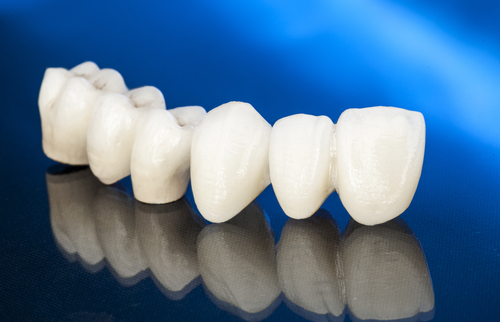What’s The Best Way to Floss
We all know we should floss, but it can be tough. Part of this is because flossing can feel like an extra task in an already busy day, but it...

Anyone who is seriously considering veneers to give themselves a cosmetic smile makeover is sure to be beaming at just the thought of finally having the smile they’ve always dreamed of. Porcelain veneers make it possible to gain an entirely new smile with minimal loss of natural tooth structure, and are the conservative way to alter one or all of your teeth.
Veneers are a big financial investment, and as with all investments, it’s vital to take good care of the areas you choose to spend your money. Read on to learn how to properly take care of veneers and keep your new smile in pristine condition.
Dental veneers are thin facings, or coverings, that bond to your natural teeth. Because of their lightweight and thinness, they are able to fit over natural teeth with only slight tooth reduction. Whereas crowns replace more of the tooth’s structure, veneers essentially create a new outer enamel layer. While they are less durable than crowns, veneers are ideal for front teeth because they are aesthetically superior to other restoration treatments. Porcelain veneers will look, feel, and behave just like natural front teeth. Veneers reflect light the way enamel does, are slightly translucent, and will watch your natural tooth color down to every little detail.
Porcelain veneers are generally sturdy and should last between 10-15 years with proper patient care. Depending on the type of wear or damage they incur, veneers may need cosmetic repair or full replacement during their lifetime. Veneers can chip and crack just like your natural teeth, so biting down on hard foods or continuing bad oral habits such as chewing on non-food items can result in damaging your veneers.
After the placement of your porcelain veneers, patients should commit themselves to an excellent oral hygiene regimen, regular visits to the dentist, and generally a healthy lifestyle. With proper care veneers are much more likely to reach the 20 year mark before needing to be replaced.
Preventing Tooth Decay
Although your porcelain veneers themselves aren’t subject to tooth decay, when the underlying tooth structure is damaged by a cavity and decay, this can also damage the veneer. In many cases, after a cavity is repaired, the tooth is no longer able to support a new veneer. Routine brushing is just as important in taking care of your veneers, if not more, as it is your natural teeth.
Ensuring Gum Health
Practicing excellent oral care is important to aid in preventing gum disease and receding gums, which will alter the appearance of veneers. Because the porcelain ends at the gumline, if the tissue recedes, the edge of the veneer will become visible, and the entire restoration may need to be replaced. Be cautious to not overbrush, and be extra cautious when cleaning around your sensitive gum tissue.
Scheduling Regular Dental Exams
Making regular appointments for cleanings and exams with your dentist will help to keep your veneers in as great of condition as the day they were put on. Having your natural teeth, as well as your veneers regularly examined will ensure you are being proactive, rather than reactive should a problem present itself.
If one of the main reasons you have veneers is because your natural teeth were damaged due to teeth grinding, make sure you also get a mouth guard to prevent the same damage from happening again to your new veneers if you have signs of teeth grinding. A custom mouth guard will fit your teeth perfectly, and feel comfortable seated in your mouth. Wearing this during the night to protect your veneers and help immobilize your jaw will keep your investment protected.
Make an appointment with Hoffman Dental Care to discover how LUMINEERS can transform not only your smile, but other areas of your life too!